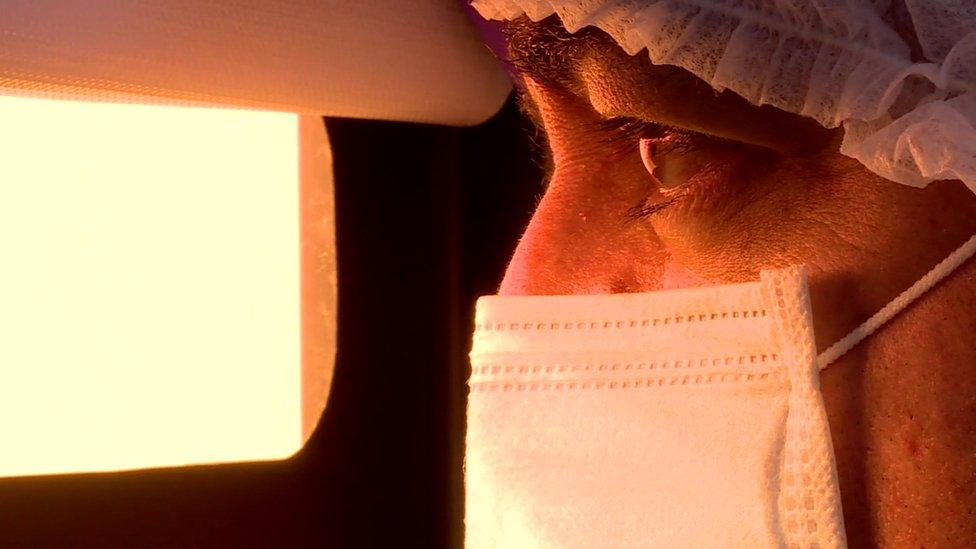Medical cannabis use could be legal in Channel Islands
- Published
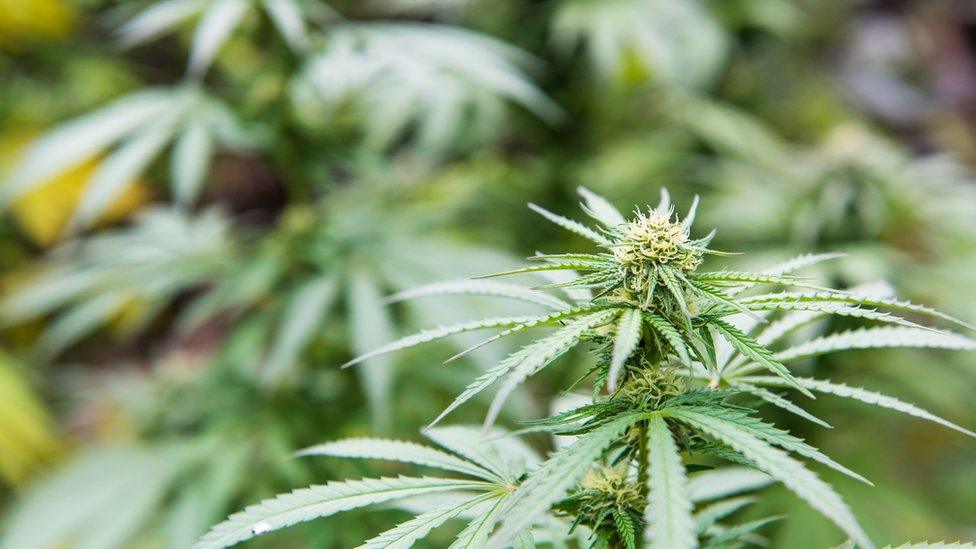
It is possible doctors could be able to prescribe medicinal cannabis from the end of the year
Medical cannabis could be legalised in Jersey and Guernsey due to the findings of a report rejected in the UK.
The islands' governments are reviewing laws around the drug, citing a report commissioned and "ignored" by a UK parliamentary committee.
Report author Professor Mike Barnes said evidence found "no reason" not to legalise cannabis for medical use, and UK laws were "behind" other countries.
The Home Office said "rigorous standards" were needed.
For more stories from across the Channel Islands.
The States of Jersey said the report, Cannabis: the Evidence for Medical Use, external, formed the basis for the planned changes across both islands.
It was reviewed by Jersey's Misuse of Drugs Advisory Council, which recommended considering reclassifying some cannabis-based products.
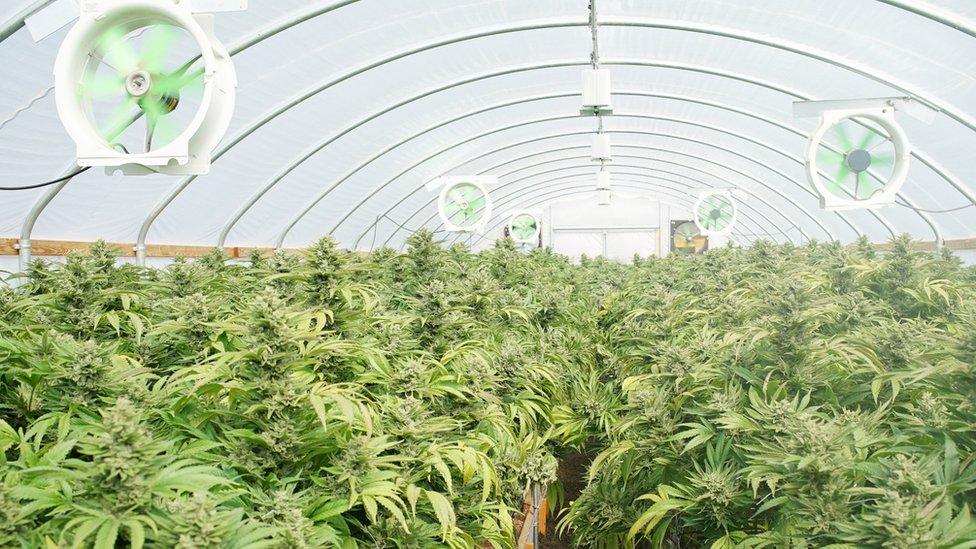
Sativex is the only cannabis based product available in the UK and Guernsey, in Jersey nabilone is also privately available
Currently cannabis is listed as having "no recognised medicinal value" under misuse of drugs laws in the UK, Jersey and Guernsey.
Jersey's health minister Senator Andrew Green and president of Guernsey's committee for health and social care, deputy Heidi Soulsby, have been working on the proposals together.
Both governments stressed the move would not "legalise cannabis or any of its derivates", which would remain controlled substances, and Senator Green called the move a "small cautious step" down the medicinal route.

The Barnes Report: Background
Commissioned in May 2016 by the UK's All-Party Parliamentary Group on Drug Policy Reform
Professor Michael Barnes and his daughter Dr Jennifer Barnes conducted a literary review of more than 20,000 papers concerning the use of drugs containing cannabinoids, a compound found in cannabis
The results showed "indisputable evidence" that cannabis-based medication helped "with a wide range of conditions", according to Professor Barnes
Strong evidence was found to support treatment of chronic pain, spasticity, nausea and vomiting, particularly in the context of chemotherapy, and anxiety
It concluded further research was being "stifled" by the government's classification of cannabis as having "no medical benefit"

On hearing of the move in the Channel Islands, Professor Barnes said he was "very pleased", and wished the UK would follow suit.
He said the UK was "well behind the rest of the world" and the current position of cannabis having "no medical benefit" was "unreasonable".
He added legalising cannabis for medical use would help developers research and produce better products.
The current system, where interested parties must apply for a Home Office licence before being able to research and develop products, is too time consuming, according to the professor.
A spokesman from the Home Office said it had "no plans" to legalise cannabis, and the drug currently has no recognised medicinal benefits in its "raw form" in the UK.
He added the cannabis-based medicine Sativex, used to treat patients with multiple sclerosis, was currently in circulation after being "rigorously tested" by the government's Medicines and Healthcare Products Regulatory Agency.
The Home Office said the UK was "open" to considering applications for other medicinal cannabis products, and would consider issuing licences to enable trials if a product complied with "appropriate ethical approvals".
- Published13 September 2016
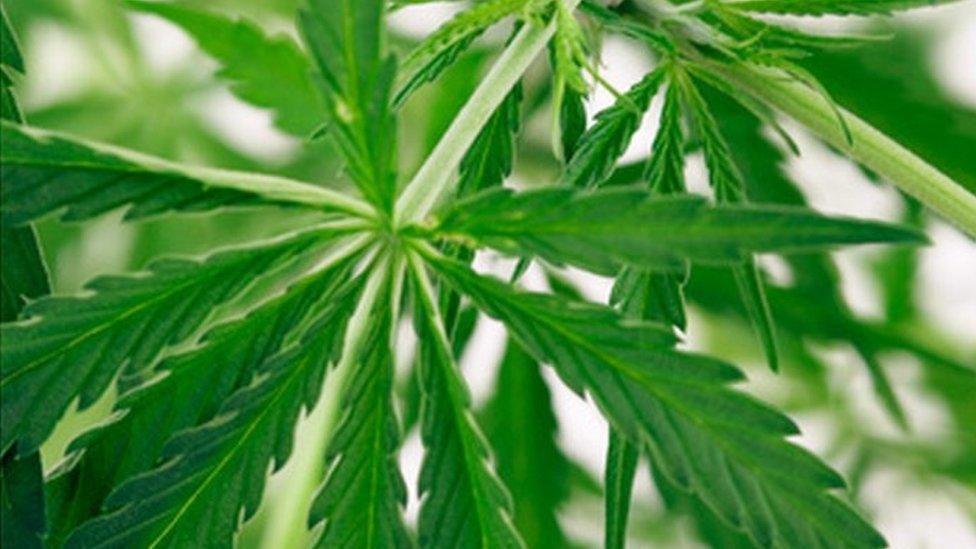
- Published13 September 2016
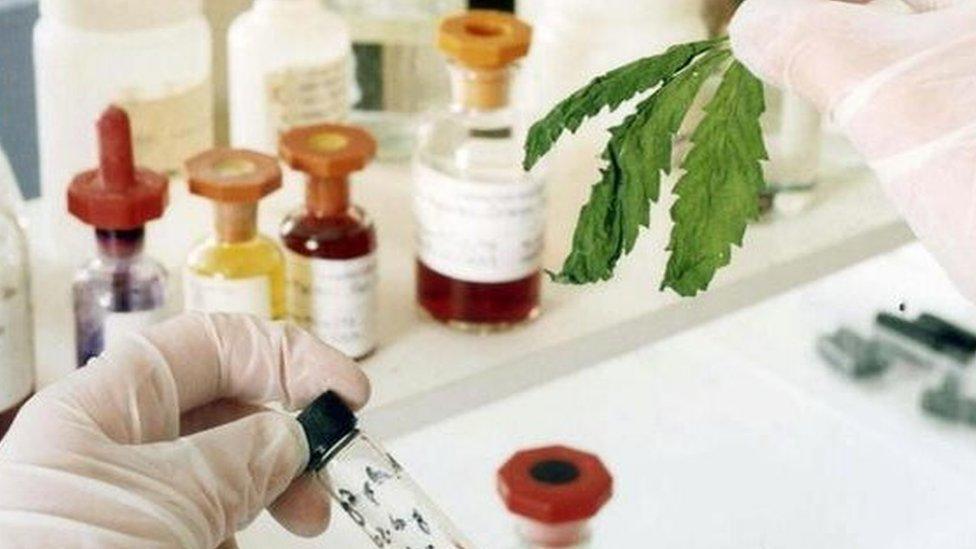
- Published10 February 2017
